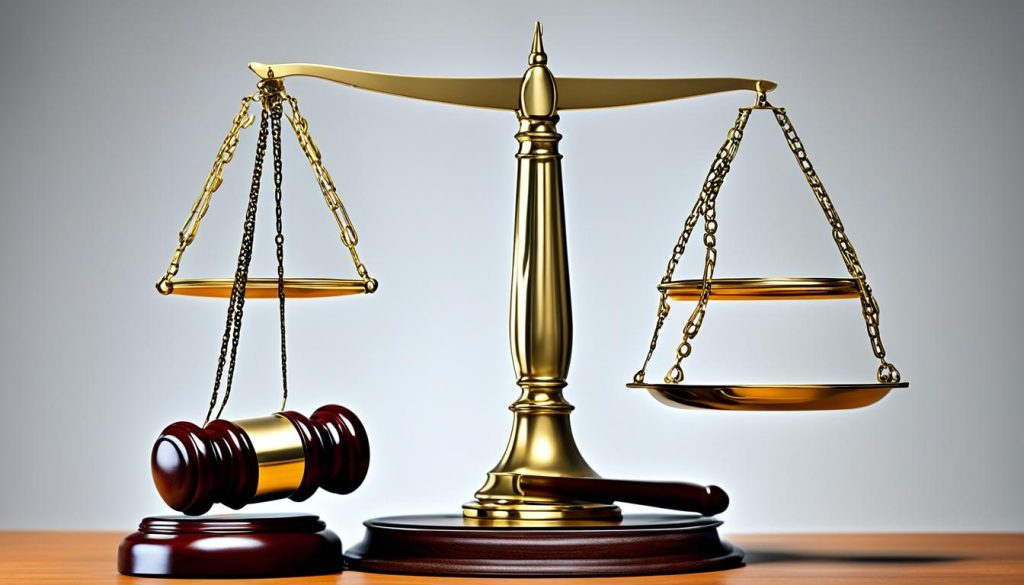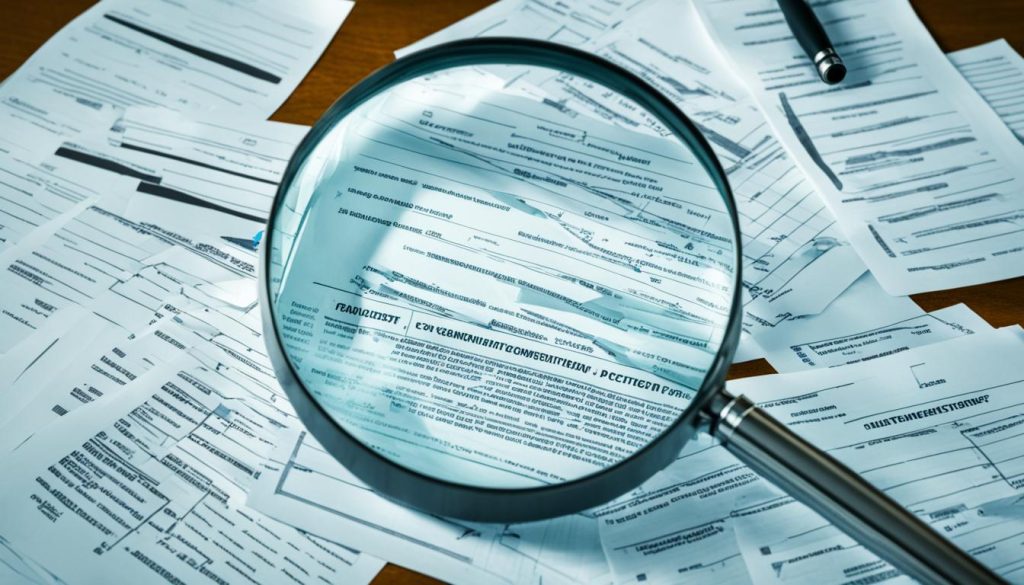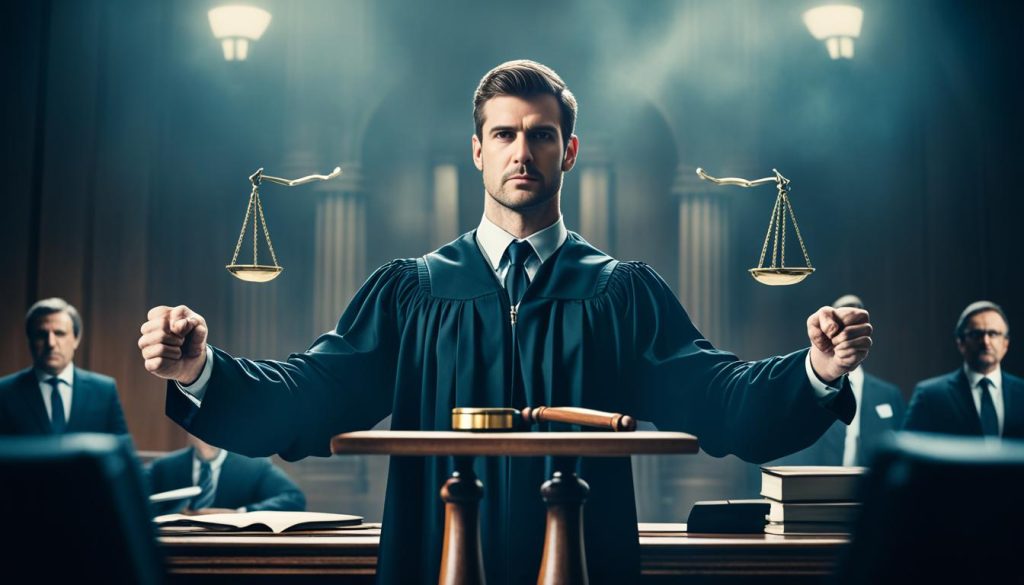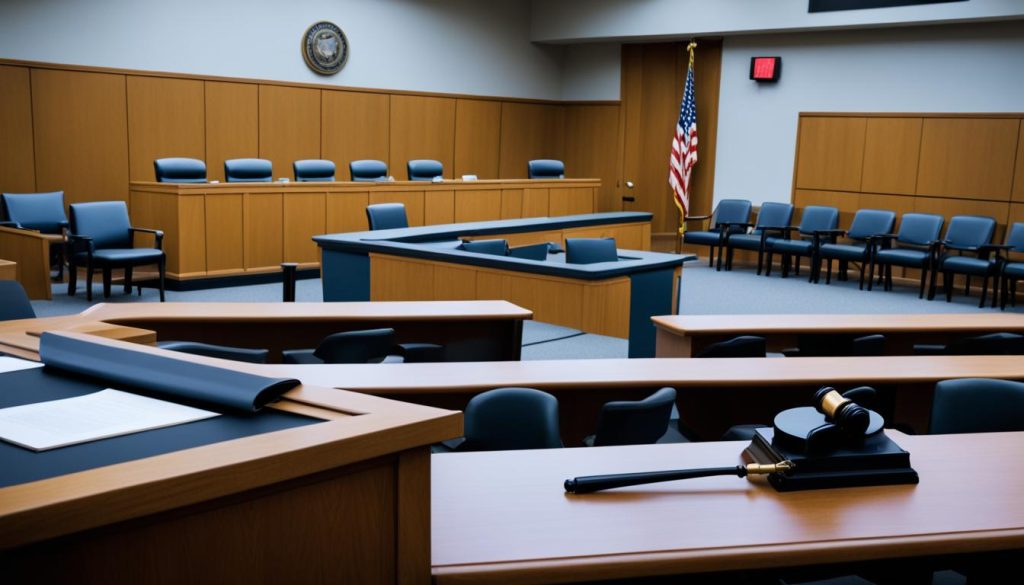Facing criminal charges can be an overwhelming and frightening experience, with your freedom on the line. As a seasoned criminal defense attorney, I utilize expert strategies to protect your rights and freedom throughout the legal process. This comprehensive article will guide you through the crucial steps in criminal law defense, from seeking legal counsel early to post-trial matters and appeals. By understanding your rights and the legal system, you can feel confident that your case is in capable hands, with an experienced professional advocating for you every step of the way.
Key Takeaways
- Importance of seeking legal counsel early in a criminal case
- Understanding your constitutional rights during the investigation and legal proceedings
- Strategies for effective communication with law enforcement
- The role of independent investigation and evidence gathering
- Negotiating with prosecutors for favorable outcomes
- Developing a tailored defense strategy and challenging the prosecution’s case
- Courtroom representation and trial advocacy
The Importance of Seeking Legal Counsel Early
When facing potential criminal charges or an ongoing investigation, it is critical to seek the guidance of a skilled criminal defense lawyer as soon as possible. A criminal defense attorney can help you navigate the complex legal system and ensure that your constitutional rights are protected throughout the criminal proceedings.
The Earlier, the Better
If you believe you may be charged with a crime or are under police investigation, do not hesitate to reach out to a criminal defense lawyer. By consulting with legal counsel early on, you can receive crucial guidance on how to handle interactions with law enforcement without compromising your rights. Your attorney can advise you on your right to remain silent and the appropriate way to respond to police inquiries, if necessary.
Your Rights and the Legal Process Explained
A seasoned criminal defense lawyer can explain the intricacies of the criminal justice system and ensure that your rights are protected at every stage of the criminal proceedings. They will work tirelessly to safeguard your freedom and explore all available legal options to achieve the best possible outcome for your case.
Safeguarding Your Constitutional Rights
As a seasoned criminal defense attorney, I understand the importance of protecting your fundamental constitutional rights throughout the investigation and judicial process. These rights are the bedrock of our legal system and serve as a critical safeguard against government overreach and abuse of power. Let’s explore three of the most essential rights that I work tirelessly to uphold on behalf of my clients:
Right to Remain Silent
The right to remain silent is a cornerstone of criminal law defense. You have the absolute right to refuse to answer questions from law enforcement officers or prosecutors, as anything you say can potentially be used against you. I advise my clients to exercise this right and refrain from making any statements without me present to ensure your constitutional rights are protected.
Protection from Unlawful Search and Seizure
The Fourth Amendment of the U.S. Constitution guarantees your right to be free from unreasonable search and seizure by the government. This means that law enforcement cannot simply search your home, vehicle, or personal belongings without a valid warrant or your consent. I closely examine any searches conducted to ensure they comply with the law and work to suppress any evidence obtained through unconstitutional means.
Access to an Attorney During Questioning
Perhaps one of the most crucial constitutional rights is your right to have an attorney present during any questioning by law enforcement or prosecutors. I strongly advise my clients to invoke this right and refrain from answering any questions without me there to protect their interests and criminal law defense. This allows me to monitor the questioning, provide guidance, and ensure no violations of your rights occur.

By upholding these fundamental constitutional rights, I am able to build a robust criminal law defense strategy that safeguards your freedom and protects you from government overreach. Remember, your rights are your most valuable asset when facing criminal charges, and I am here to ensure they are zealously defended every step of the way.
Effective Communication with Law Enforcement
As a criminal defense lawyer, I understand the importance of effective communication with law enforcement on behalf of my clients. This includes attending interviews with police and advising you on which questions to answer and what information to provide, if any. Your attorney also handles requests for interviews or information, ensuring that your rights are not violated during any interactions with law enforcement officers, investigators, or prosecutors.
Attending Interviews and Advising on Responses
When you are asked to participate in an interview with the police, it’s crucial to have your criminal defense lawyer present. They can provide guidance on how to respond to questions, what information to share, and when it’s appropriate to invoke your right to remain silent. By having an attorney present, you can avoid inadvertently making statements that could be used against you in a criminal case.
Handling Requests for Information and Interviews
Your criminal defense lawyer will also handle any requests for information or interviews from law enforcement on your behalf. They will communicate with the police or investigators, negotiate the terms of any interviews, and ensure that your constitutional rights are protected throughout the process. This includes preventing any coercion or undue pressure from law enforcement and safeguarding your right to privacy and due process.
Independent Investigation and Evidence Gathering
When facing criminal charges, a comprehensive defense strategy is essential to protecting your rights and freedom. As part of this approach, my criminal defense team will conduct an independent investigation into the allegations against you. This comprehensive inquiry includes gathering relevant evidence, interviewing witnesses, reviewing police reports, and closely examining any new evidence presented by the prosecution.
Interviewing Witnesses
One crucial component of our independent investigation is interviewing witnesses who may have relevant information about the incident or your involvement. Our team will seek out and speak with individuals who can provide firsthand accounts or potentially exculpatory evidence. By gathering witness statements, we can uncover details that may support your version of events and expose weaknesses in the prosecution’s case.
Reviewing Police Reports and Evidence
In addition to witness interviews, we will meticulously review all police reports and other evidence gathered by law enforcement. This comprehensive evidence gathering process allows us to identify inconsistencies, errors, or areas where the prosecution’s case may be vulnerable. By closely examining this information, we can develop effective strategies to challenge the admissibility or reliability of the evidence against you.
Identifying Weaknesses in the Prosecution’s Case
Through our thorough independent investigation, we aim to uncover any weaknesses in the prosecution’s case that could work in your favor. This may include procedural missteps, insufficient or contradictory evidence, or credibility issues with the state’s witnesses. By identifying these vulnerabilities, we can craft a compelling defense strategy to establish reasonable doubt and achieve the best possible outcome for your case.

Negotiating with Prosecutors
As a skilled criminal defense attorney, I am adept at negotiating with prosecutors to explore options for a favorable resolution in your case. This may involve negotiating a plea agreement that results in a reduction of the charges against you or a more lenient sentence. I can also advocate for your placement into a specialty court program designed to address underlying issues such as drug addiction or mental health treatment, providing an alternative to traditional criminal proceedings.
Exploring Plea Agreements and Charge Reductions
Plea bargaining is a common practice in the criminal justice system, and I can leverage my negotiation expertise to secure a plea agreement that minimizes the potential consequences you face. By engaging in discussions with prosecutors, I can work to have charges reduced or the severity of the charges lessened, often leading to a more favorable outcome for you.
Advocating for Specialty Court Programs
In certain circumstances, I may be able to advocate for your participation in a specialty court program, such as a drug court or mental health court. These programs are designed to address the root causes of criminal behavior and offer alternative sentencing options that prioritize rehabilitation over incarceration. By securing your placement in a specialty court program, I can help you avoid the traditional criminal justice system and access the resources and support you need to address the underlying issues contributing to your legal troubles.
Seeking Immunity in Exchange for Cooperation
In some cases, I may negotiate with prosecutors to secure immunity from prosecution in exchange for your cooperation and testimony against other individuals involved in the alleged criminal activity. This strategy can be particularly effective when you have information or evidence that the prosecution deems valuable, and it can potentially lead to a complete dismissal of the charges against you.
Criminal Law Defense
As a seasoned criminal defense attorney, I understand the importance of crafting a tailored defense strategy to protect your rights and freedom. Based on the independent investigation, evidence, and information obtained in discovery, along with a thorough analysis of the prosecution’s case, your criminal defense team will develop a comprehensive strategy to address the unique circumstances of your situation.
Developing a Tailored Defense Strategy
Some vital elements of creating a strong criminal law defense include identifying any procedural errors or weaknesses in the prosecution’s case, challenging the admissibility of inadmissible evidence, assessing the credibility of witnesses, and crafting compelling arguments to refute the charges against you. By meticulously examining every aspect of the case, we can construct a defense strategy that effectively counters the prosecution’s allegations and increases the likelihood of a favorable outcome.
Challenging Procedural Errors and Inadmissible Evidence
One of the key responsibilities of your criminal defense team is to thoroughly review the prosecution’s case for any procedural errors or instances where evidence may be deemed inadmissible. This could include violations of your constitutional rights, improper search and seizure procedures, or the introduction of evidence obtained through unlawful means. By identifying these weaknesses, we can strategically challenge the prosecution’s case and potentially have damaging evidence excluded from the proceedings.
Engaging Expert Witnesses
Depending on the nature of your case, your criminal law defense may also involve the strategic use of expert witnesses. These individuals, who possess specialized knowledge and expertise in fields such as forensics, mental health, or accident reconstruction, can provide invaluable testimony to support your defense and refute the prosecution’s claims. By carefully selecting and preparing these expert witnesses, we can strengthen your case and present a compelling narrative that resonates with the judge or jury.

Courtroom Representation and Trial Advocacy
If your case progresses to a criminal trial, your seasoned courtroom representation and trial advocacy will be crucial in securing a favorable outcome. Your criminal defense lawyer will meticulously prepare you for the courtroom, presenting a compelling defense presentation and employing strategic cross-examination of prosecution witnesses to challenge the prosecution’s evidence and arguments.
Presenting Your Defense
Your defense attorney will work closely with you to craft a tailored defense strategy that aligns with the unique circumstances of your case. They will leverage the findings from their independent investigation, evidence gathered, and analysis of the prosecution’s case to build a compelling narrative that establishes reasonable doubt in the minds of the judge or jury.
Cross-Examining Prosecution Witnesses
One of the key components of effective trial advocacy is the ability to conduct thorough and strategic cross-examination of the prosecution’s witnesses. Your defense lawyer will meticulously prepare for this process, seeking to undermine the credibility of the witnesses and expose any weaknesses or inconsistencies in their testimony.
Challenging the Prosecution’s Evidence and Arguments
Throughout the trial, your criminal defense team will actively challenge the prosecution’s evidence and arguments. They will identify any procedural errors, contest the admissibility of evidence, and present counterarguments that cast doubt on the prosecution’s case. This aggressive yet strategic approach aims to create reasonable doubt and increase the likelihood of a favorable verdict.
Post-Trial Matters and Appeals
If you have been convicted of a criminal offense, your defense attorney’s work doesn’t end there. They can provide invaluable guidance and representation during the crucial post-trial matters, including sentencing advocacy and appeals or post-conviction relief efforts.
Sentencing Advocacy
During the sentencing phase, your criminal defense lawyer will advocate on your behalf to help mitigate the penalties imposed. They may present evidence and arguments to the court, highlighting mitigating factors that could result in a more lenient sentence. This can include your personal circumstances, community involvement, likelihood of rehabilitation, and other relevant considerations that could sway the judge’s decision.
Filing Appeals and Post-Conviction Relief
If you believe the verdict or sentence was unjust, your defense attorney can initiate the appeals process or seek post-conviction relief. They will meticulously review the trial record, identify potential legal errors or constitutional violations, and file the necessary appeals to challenge the conviction or sentence. This may involve requesting a new trial or arguing for a reduced sentence before a higher court.
Throughout the post-trial matters and appeals process, your criminal defense lawyer will remain by your side, advocating tirelessly to protect your rights and explore every available avenue to achieve the best possible outcome, even after the initial trial has concluded.

Conclusion
As a seasoned criminal defense attorney, I have dedicated my career to protecting the rights and freedoms of individuals facing criminal charges. Throughout this comprehensive article, we’ve explored the critical strategies and steps involved in a robust criminal law defense, from the importance of seeking legal counsel early to the various aspects of courtroom representation and post-trial matters.
By understanding your constitutional rights, the importance of effective communication with law enforcement, and the value of an independent investigation and evidence gathering, you can feel empowered and confident in navigating the complex legal landscape. Furthermore, the ability to negotiate with prosecutors, develop a tailored defense strategy, and engage in skilled courtroom advocacy can make all the difference in the outcome of your case.
Regardless of the challenges you may face, remember that you have the right to a vigorous defense and a team of experienced professionals dedicated to protecting your freedoms. With the guidance and expertise of a seasoned criminal defense attorney, you can take the necessary steps to safeguard your rights and pursue the best possible resolution for your case.
FAQ
If I think I might be charged with a crime or am under police investigation, when should I seek legal counsel?
What are some of the most important rights I possess under the law?
How does a criminal defense lawyer communicate with law enforcement on my behalf?
What does a criminal defense team do in terms of conducting an independent investigation?
How can a criminal defense lawyer negotiate with prosecutors?
What are some key elements of a strong criminal defense strategy?
What does a criminal defense lawyer do during a trial?
What happens after a conviction, and how can a criminal defense attorney help?
Source Links
- https://www.cliffsnotes.com/study-guides/criminal-justice/defense-attorneys/defense-strategies
- https://wh.lawyer/resources/🔒👩⚖️-protect-your-freedom-why-you-need-a-criminal-attorney-👨⚖️🔒
- https://www.grossmcginley.com/resources/blog/what-can-a-criminal-defense-lawyer-do-if-you-are-the-subject-of-an-investigation/
